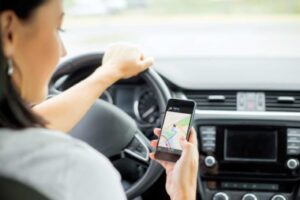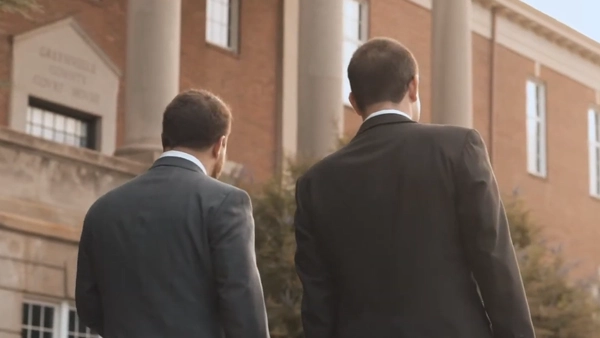We live in a world of technology. Technology is an unavoidable part of living, working, and driving in today’s society. Our increased reliance on technology and electronic communication has created a very real concern for the safety and well-being of every individual that dares to get behind the wheel on a regular basis. There is now an enormous risk that you may find yourself involved in an auto accident caused by texting and driving. Serious injuries and fatalities resulting from drivers who are distracted while sending text messages are becoming more and more of a health and safety concern every single day.
The increased utilization of electronic communication in the workplace, as well as the increased popularity of social media, have resulted in a general expectation and habit for many people of quickly responding to and making electronic inquiries and communications quickly and immediately, regardless of whether a person happens to be driving, at a work or family function, or otherwise occupied. People develop a level of comfort, and familiarity, when driving that long, daily commute, and can tend to pass that seemingly wasted time behind the wheel texting and driving. This practice is broadly seen as common and socially acceptable, but continues to result in multiple auto accidents that land many people in the hospital, and leaves at-fault drivers facing serious criminal and administrative penalties for texting while driving.

South Carolina State Laws Banning Texting while Driving
The South Carolina legislature recognized this ever-increasing safety concern posed by texting and driving, and has enacted legislation which aims to address and minimize auto accidents caused by texting and driving. As set forth by South Carolina Code Section 56-5-3890, it is unlawful for a person to use a wireless electronic communication device to compose, send, or read a text-based communication while operating a motor vehicle on the public streets and highways of this State.
The relevant statute provides the following definitions for the purposes of interpreting the ban on texting and driving:
- “Wireless electronic communication device” means an electronic device, including, but not limited to, a telephone, a personal digital assistant, a text-messaging device, or a computer, which allows a person to wirelessly communicate with another person.
- “Text-based communication” means a communication using text-based information, including, but not limited to, a text message, an SMS message, an instant message, or an electronic mail message.
Exceptions
The statute does not apply to a person who is:
- Lawfully parked or stopped;
- Using a hands-free wireless electronic communication device;
- Summoning emergency assistance;
- Transmitting or receiving data as part of a digital dispatch system;
- A public safety official while in the performance of the person’s official duties; or
- Using a global positioning system device or an internal global positioning system feature or function of a wireless electronic communication device for the purpose of navigation or obtaining related traffic and road condition information.
A hand-free device is defined by this statute as an electronic device which allows a person to wirelessly communicate with another person without holding the device in either hand by utilizing an internal feature or function of the device, an attachment, or an additional device. A hands-free wireless electronic communication device may require the use of either hand to activate or deactivate an internal feature or function of the device.
Penalties for Texting and Driving
The number of tickets that a person has received for texting and driving will dictate the severity of their fine.
- A first offender will likely be fined no more than $25.00
- A multiple offender will be fined no more than $50.00.
Practical Issues with the Applicable Statute
- A law enforcement officer CANNOT pull a driver over for texting and driving unless they have “probable cause” that the person was texting resulting from a clear and unobstructed view of them engaging in such behavior.
- A law enforcement officer can NOT look through a driver’s phone following suspected texting and driving.
- A law enforcement officer can NOT search a driver’s vehicle or confiscate a driver’s phone as a result of texting and driving.
- The following equally dangerous uses of one’s phone while driving are NOT included as violations of the statute:
-
- Playing phone games,
- Surfing the web and checking their social media accounts,
- Using their phone for navigation purposes, and
- Communicating via FaceTime or Skype.
Consult with a Greenville, South Carolina Auto Accident Attorney Today
Clearly, despite this legislation, there is still some work to be done from a practical standpoint with respect to the laws surrounding texting and driving. If you find yourself facing injuries stemming from an at-fault driver texting and driving, you should start by contacting car wreck and injury attorneys at David R. Price, Jr., P.A. to help you navigate the legal process and recover for your injuries.








